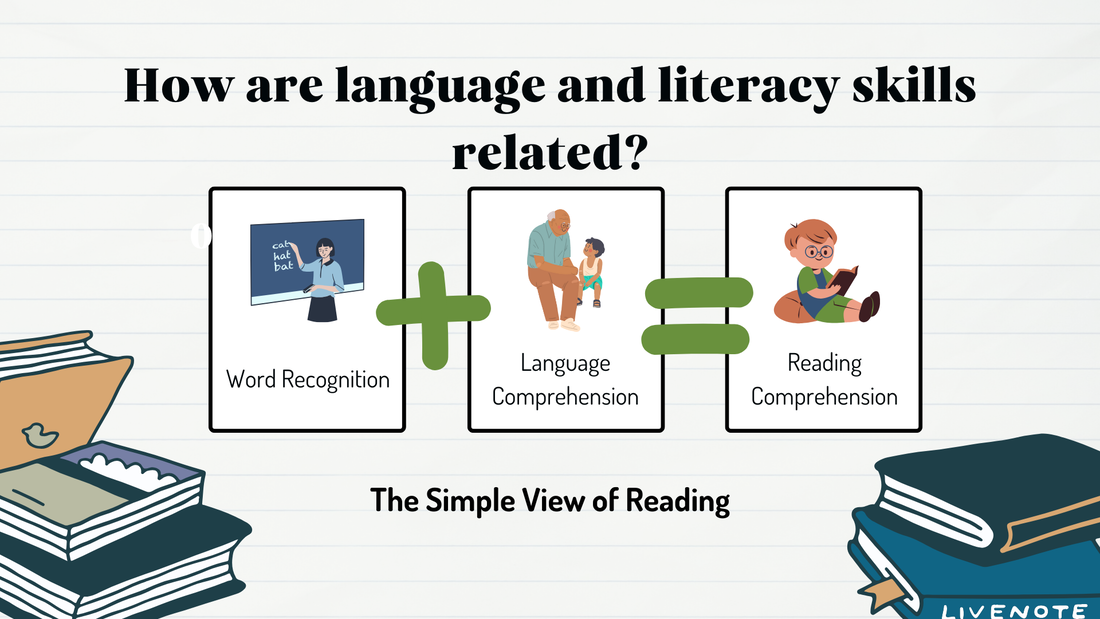|
Winter break is a magical time for families to come together and create lasting memories. With school out and the holiday spirit in the air, it's the perfect opportunity to engage in activities that will bring joy and laughter to your household. Here are 10 exciting ideas to keep your kids entertained and make the most of this winter break.
1. Winter Wonderland Crafts: Gather your craft supplies and embark on a winter-themed crafting adventure with your kids. From snowflake decorations to paper plate snowmen, there are countless ideas to explore. Encourage your children to unleash their creativity and proudly display their masterpieces around the house. 2. Baking Bonanza: The winter season is synonymous with delicious treats. Spend a day in the kitchen baking cookies, cupcakes, or gingerbread houses with your little ones. Not only does this activity result in tasty treats, but it also provides an opportunity to teach your kids valuable cooking skills. 3. Outdoor Adventure: Bundle up in warm layers and head outdoors for some winter fun. Whether it's building snowmen, having a friendly snowball fight, or going sledding, there's no shortage of activities to enjoy in the crisp winter air. Don't forget to capture these moments with a family photo in the snow! 4. Family Movie Marathon: Create a cozy movie-watching haven at home complete with blankets, pillows, and popcorn. Allow each family member to choose a favorite movie, creating a personalized marathon that caters to everyone's taste. It's an excellent way to relax and bond over shared cinematic experiences. 5. Library Day: Visit your local library and spend an afternoon immersed in the world of books. Encourage your kids to pick out a mix of fiction and non-fiction titles, and perhaps even start a family book club. Reading together fosters a love for literature and provides an opportunity for meaningful discussions. 6. Indoor Game Night: Beat the winter chill by hosting a family game night. Dust off classic board games, or try out new ones. Whether it's a competitive round of Monopoly or a cooperative game that encourages teamwork, game night is a fantastic way to engage with your kids and have loads of fun. 7. DIY Science Experiments: Turn your home into a mini science lab and conduct simple experiments that captivate your children's curiosity. From making slime to creating a volcano eruption, these hands-on activities not only entertain but also offer valuable learning experiences. 8. Family Volunteer Day: Instill a sense of gratitude and compassion by spending a day volunteering as a family. Whether it's at a local food bank, animal shelter, or community center, contributing to the well-being of others can be a rewarding and heartwarming experience for the whole family. 9. Create a Time Capsule: Gather items that represent your family's current interests, write letters to your future selves, and create a time capsule together. Bury it in the backyard or store it in a safe place to be opened during the next winter break. It's a wonderful way to reflect on the passing of time and reminisce about cherished memories. 10. Plan a Mini Staycation: Transform your home into a vacation destination for a day. Set up a "beach" in the living room with blankets and towels, cook a themed dinner, and engage in activities that transport your family to a different place. It's a creative way to have a mini getaway without leaving the comfort of your home. Winter break is an excellent opportunity for families to connect, have fun, and create lasting memories. Whether you choose to explore the outdoors, engage in creative activities, or simply relax at home, these ideas will ensure that your winter break is filled with joy, laughter, and meaningful moments with your kids. Enjoy the break, and may it be a time of warmth, connection, and family bonding!
0 Comments
As winter blankets the world in a serene layer of snow, parents can take advantage of the cozy indoor atmosphere to create delightful reading adventures. The colder months provide the perfect backdrop for immersing your family in captivating stories, fostering a love for literature, and creating lasting memories with your kiddos. In this article, we'll explore the joys of winter reading for parents and share tips on making the most of this cherished seasonal activity. 1. Build a Winter Reading Nook: Transform a corner of your home into a winter reading nook that beckons with warmth and comfort. Layer soft blankets and plush pillows to create a cozy space where you and your children can snuggle up with a good book. Consider adding fairy lights, candles, or even create a faux fireplace with video on your ipad or laptop to enhance the ambiance. A well-designed reading nook can turn reading time into a magical experience. 2. Select Seasonal Stories: Choose books that align with the winter season to create a thematic reading experience. Dive into tales of snow-covered landscapes, winter adventures, or heartwarming stories set during the holiday season. Classics like "The Snowy Day" by Ezra Jack Keats or "The Polar Express" by Chris Van Allsburg can transport you and your children to enchanting winter wonderlands. If you need more ideas check out our facebook page here, we will have a couple posts with ideas separated by age/grade level! 3. Incorporate Interactive Reading: Make winter reading a dynamic and interactive experience by involving your children in the storytelling process. Encourage them to ask questions, predict outcomes, and even act out scenes from the book. For younger children, interactive books with flaps, textures, or sound effects can add an extra layer of engagement to the reading session. 4. Create a Winter Reading Challenge: Turn winter reading into a family-friendly challenge by setting reading goals for everyone involved. Create a reading chart or use an app to track the number of books read or hours spent reading. Consider incorporating small rewards or incentives to motivate both parents and children to dive into the world of literature. 5. Explore Different Genres: Winter is an excellent time to explore a variety of literary genres. Whether it's a classic novel, a collection of short stories, or a contemporary fiction piece, the season provides the perfect backdrop for diverse reading experiences. Rotate genres to keep the reading routine exciting and introduce your children to a wide range of storytelling styles. 6. Host a Family Book Club: Transform winter reading into a shared family experience by hosting a family book club. Choose a book that appeals to both parents and children, and schedule regular discussions to share thoughts and insights. This not only promotes family bonding but also nurtures critical thinking skills in your children. Winter reading is an opportunity to create cherished memories, foster a love for literature, and strengthen family bonds. By embracing the chill and immersing yourselves in captivating stories, you'll not only weather the winter months but also cultivate a lifelong appreciation for the magic of reading in your children. So, grab a cup of hot cocoa, gather your loved ones, and embark on a winter reading adventure that will warm your hearts for years to come.
Just the other day I had a super important conversation with a concerned parent. Their child had recently been screened for Dyslexia at school and the teacher was recommending moving forward with more testing and possible intervention. The parent was wondering why a wait-and-see approach couldn’t be taken given that the student was only just entering the 2nd grade.
It is true that with some skills areas watching and observing is an appropriate approach but this is not the case with delays in literacy development or if Dyslexia is suspected. Research has consistently shown that early intervention can make a world of difference in a child's ability to overcome dyslexia and succeed academically and emotionally. In this article, we will explore why early intervention is so important and how it can positively impact your child's future. 1. The Window of Opportunity: Imagine a window of opportunity that opens during your child's early years, allowing them to build the fundamental skills necessary for reading and writing. As reported in by the American Academy of Pediatrics, this window is real and it's during these early stages that the brain is most highly adaptable and responsive to interventions. The earlier we provide support and evidence-based instruction, the better equipped your child will be to develop strong reading skills. 2. Academic Success Starts Early: Researchers, as cited in the Journal of Pediatrics, found that the achievement gap between Dyslexic readers and their peers is evident as early as first grade. This means that early intervention is crucial to preventing your child from falling behind in school. The National Institute of Health states that "95% of poor readers can be brought up to grade level if they receive effective help early." Early intervention is key to narrowing or even closing the achievement gap between children with Dyslexia and their typically developing peers. Academic success often begins with reading proficiency, and early intervention gives your child the tools they need to keep up with their classmates. 3. Lasting Impact: One of the most significant advantages of early intervention is its long-lasting impact. Programs targeting dyslexia in first or second grade have been shown to result in greater gains in basic reading skills. Moreover, these improvements continue well after the intervention program ends. Early intervention sets your child on a path to ongoing success in their reading and language development. 4. Emotional Well-Being: Difficulty with reading and writing can be frustrating and stressful for children. The struggles they face can lead to secondary problems such as behavioral issues, anxiety, and even depression. Early intervention tackles the root cause of these challenges, reducing the likelihood of emotional difficulties and ensuring your child's self-esteem remains intact. 5. Building a Strong Support System: Early intervention is a collaborative effort involving educators, parents, and specialists. Identifying and addressing Dyslexia early ensures your child receives the necessary assistance and accommodations throughout their educational journey. This strong support system can make all the difference in your child's progress. In summary, early intervention for Dyslexia is not just important; it's critical for your child's academic and emotional well-being. The research is clear: the earlier we provide support, the better the outcome. By addressing Dyslexia early, you give your child the best possible foundation for a bright and successful future. Don't wait; take action today to ensure your child gets the help they need to thrive in school and beyond. Dyslexia, a language-based learning disorder that affects reading and writing skills, impacts 1 in 5 people worldwide. To fully understand the speech-language pathologist’s role in diagnosing and treating Dyslexia, it is important to realize the connection between language and the development of literacy skills. The Simple View of Reading At its core, reading can be simplified into two main components: language comprehension and word recognition.
Language comprehension encompasses vocabulary knowledge, verbal reasoning, and grammar skills. These skills in understanding language lead us to the ultimate goal of reading which is to understand and make sense of written text. What may not be as apparent is the profound role that language plays in word recognition. Written words are, in essence, a visual representation of spoken language. To read fluently and with understanding, our brains must quickly connect letters (symbols) to the corresponding sound they make. The ability to do this starts before we even learn our letter sounds. It begins with developing phonological awareness, the ability to recognize and manipulate sounds in words. These strong processing abilities in the sound system of language are crucial for developing fluent reading skills. The connection between speech-language development and literacy skills is undeniable. Children who struggle with speech-language development are at higher risk of encountering difficulties when learning to read and write. This connection highlights the vital role that speech-language pathologists can play in diagnosing and treating Dyslexia. Here’s how SLPs can make a difference:
In a nutshell, reading is not just about the letters on the page; it's about connecting those letters to the speech and language centers of our brain. Kids with Dyslexia can overcome their reading challenges with the help of a variety of professionals including speech-language pathologists, who are experts in language and how we learn it. If you are looking for support for your child feel free to reach out for a free 30-minute consultation. |




